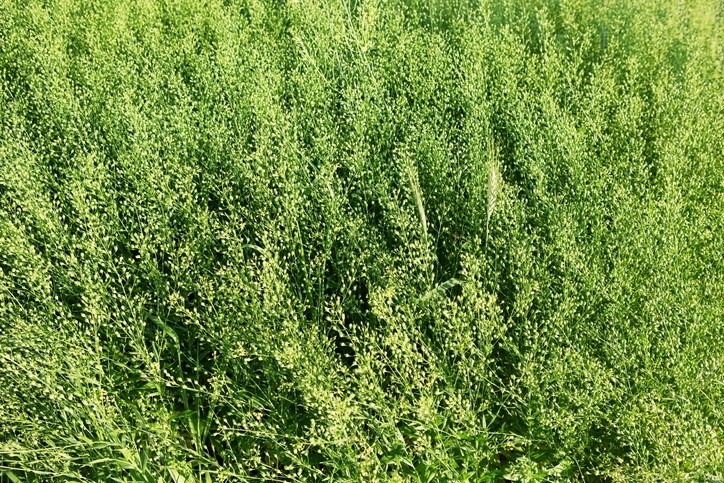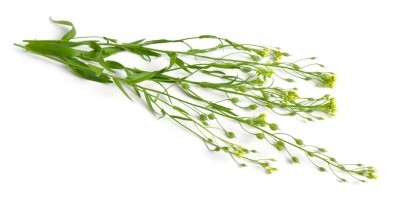UK trials on GM oils for feed and food greenlighted

The UK’s Department for Environment, Food and Rural Affairs (Defra) has just given permission to Rothamsted Research to run the trials.
The successful application follows previous GM camelina trials carried out last year by the same research institution across two sites in Hertfordshire and Suffolk.
The first part of the proposed research is set to determine performance in the field and the seed oil yield of transgenic camelina plants engineered to accumulate eicosapentaenoic (EPA, 20:5n-3) and docosahexaenoic (DHA, 22:6n-3) in their seeds, said Rothamsted.
The science
A review paper, undertaken by the institute, in collaboration with University of Stirling and the Norwegian University of Science and Technology, found such GM oils to be an effective substitute for fish oil in the feeds of farmed salmon.
Firstly, the authors of that paper noted multiple investigations of the oils derived from genetically-engineered Camelina sativa, including both EPA-only and EPA+DHA versions, in both Atlantic salmon and in sea bream: “In all these studies, the modified camelina oils have been used to replace both fish oil and vegetable oil, showing that they can directly replace all the added oil in feeds without negative impacts on fish growth or health.”
The reviewers further observed that the most recent study showed that replacing both fish oil and rapeseed oil with a camelina oil containing > 25% n-3 LC-PUFA doubled the EPA+DHA level in the flesh of the salmon compared to fish fed the current commercial standard feed. They said such findings suggest “this oil could restore levels in harvest-size salmon to those last seen more than a decade ago before the development of sustainable feeds with high replacement of marine ingredients.”
Palatability angle
The second strand of the five-year project will look at the performance of Camelina plants whose metabolism has been altered to increase seed oil content, said Rothamsted.
The final part will investigate the performance of Camelina plants engineered to contain less sinapine in their seeds. Sinapine is a bitter-tasting, antinutritive chemical that can make the protein-rich seed meal less palatable as an animal feed, according to the institute.
Opposition to trials
GM Freeze and 34 other anti-GM UK based organizations asked Defra to refuse Rothamsted Research’s application for a new open field trial of GM camelina plants:
“We do not believe that this trial should go ahead. The application is incomplete, the intended genetic modifications may cause harm, the containment measures are inadequate, the relationship with existing consents is not clear and the proposed trial will be of no net benefit to society.
“We request, therefore, that the Minister denies consent and prevents this open-air field trial going ahead,” wrote the activists in an open letter in March.
While Rothamsted Research argued, in its application, that a deliberate release of GM camelina producing EPA and DHA was justified on sustainability, health and nutrition grounds, the GM opponents claimed there was no conclusive evidence of health benefit from omega-3 fatty acid supplementation.
“Even if we accept the premise that higher EPA and DHA consumption will lead to better health, it does not follow that these fatty acids must be obtained by eating fish,” they continued.
GM camelina is neither the only nor, in all likelihood, the most economical, solution to reducing the use of fish oil as a feed in aquaculture, they said.
“The potential for microalgae to be used as a feed for aquaculture has received much attention from the research community and shows potential to have a smaller resource footprint than traditional fish feed,” they argued.
Citing Rothamsted Research’s published ambition to replace 1m Mt tons of fish oils harvested from seas by a similar amount produced on land by its GM Camelina, the campaigners said they were unable to find any analysis of the anticipated environmental or agricultural impact of devoting the required area of prime arable land to produce that level of output.
Converting arable land that should be growing high quality food for direct human consumption into an open-air factory producing micronutrient additives for industrially farmed animals will not support the UK secretary of state’s stated aims of “a more rational, and sensitive agricultural policy which promotes environmental enhancement, supports profitable food production and contributes to a healthier society.”











